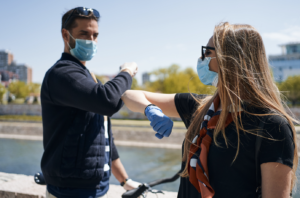Dear Travel Industry friends, it’s time to work together.
Some day soon, I’ll try and write a piece without using the word Covid, but I’m not there yet. Reflecting on some of the lessons from the Covid Pandemic, I think the way it brought people together, with a shared fear and camaraderie to overcome an adverse situation, was probably the most important, showing the true good in humans. Why is it then that post-pandemic, we can’t work together over simple things, like financial protection for the benefit of consumers and the ease of adoption for travel companies?
Review some of the press over the last couple of weeks, and on the one hand, you have Mark Tanzer of ABTA saying that “We don’t want to be in the business of running trusts…for a lot of people, bonding is still the most cost-effective [option], rather than a trust account.” Review the ATOL consultation, and the main feeling is that it has trusts forming a significant part of what the future looks like to them in terms of protecting the customers. Then start to dig into what other options there are throughout the EU, and it varies from country to country – it could be trusts, escrow, or insurance.
The Package Travel Regulations allow three modes of protecting the customer – money held in trust, bonding, and insurance. Post-Covid, there is a shortage of insurers and bond providers looking to re-enter the market, so the options are narrowed. There is hope these will return, but nobody knows when. There are numerous initiatives to bring financial protection and reporting into the 21st Century.
It all starts with the ability to collect and use data to not only visualise but also affect meaningful mitigation of the risk. From this point, you can not only give insurers and bond providers accurate declarations, but you can also accurately manage monies in and out for trust account providers. The technology is there, but regulators need to come to the table to utilise it and help support meaningful change.
Tanzer’s fear, I suspect, comes from the experiences of old school trust accounts, which were manually reconciled and managed and why he goes on to conclude that one of the downsides is “you have to run the trust account.”. Historically, trusts offered ABTA little visibility and thereby little comfort to approve. Let’s all put our cards on the table though those are the trust accounts of old and provides are not work in that way. Likewise, acquirers are getting better at collecting and using the data and adopting different risk approaches, so why not the travel regulators?
Let’s make data central to what we do, agree on a data standard across the board, and find a compliant and easy way of making this accessible to the regulators and the various providers in the chain. Do all of this, and we can open up different financial protection options to suit travel companies, but always to protect the consumer. No two travel companies are at the same risk, so let’s look at proper risk analysis but appropriate cover from one or several solutions.
What this ultimately means, though, is we work together – we don’t rule in or out solutions just because we historically haven’t supported them. We make it easier for travel providers to be appropriately and sufficiently covered to protect the consumers and allow providers to get on with selling holidays.

What the travel industry learned from the pandemic?
What the travel industry learned from the pandemic? After something goes wrong, it is good practice

How Will AI Impact Review Fraud in the Travel Industry?
How Will AI Impact Review Fraud in the Travel Industry? Businesses rely heavily on online

The Importance of Flexibility, Choice and Customer Protection in the New Normal
The Importance of Flexibility, Choice and Customer Protection in the New Normal The travel industry has



